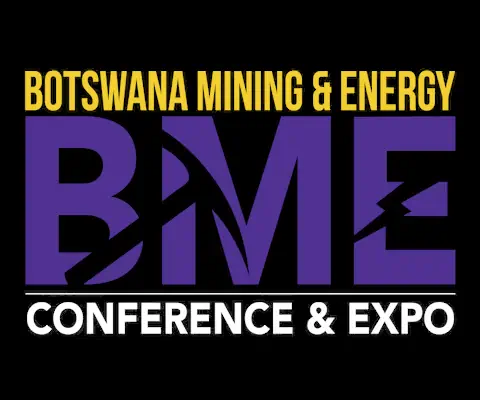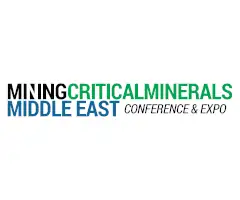Perspectives of using satellite databases of greenhouse gas emissions in monitoring of mining facilities
 V.V. Antoshin1, A.I. Manevich2, 3, A.A. Gavrilova3, A.A. Kamaev2, 3
V.V. Antoshin1, A.I. Manevich2, 3, A.A. Gavrilova3, A.A. Kamaev2, 3
1 NGK Gorny LLC, Moscow, Russian Federation
2 Geophysical Center, Russian Academy of Sciences, Moscow, Russian Federation
3 National University of Science and Technology MISIS, Moscow, Russian Federation
Russian Mining Industry №3 / 2024 стр. 118-121
Abstract: Emissions of the greenhouse gases, particularly methane and carbon dioxide, by the mining, processing, and energy industries can significantly affect pollution in the bottom layer of the atmosphere, aerosols, and the atmospheric greenhouse effect. Continuous monitoring of emissions is the basis for developing effective strategies to reduce greenhouse gas emissions. Satellite missions are actively used for this purpose. The article provides an overview and description of the existing databases of greenhouse gas emissions obtained based on satellite measurements. The monitoring methodology involves satellite spectroscopy aimed at analyzing the spectral characteristics of light absorbed by the atmosphere. The results of measurements by satellite spectrometers show the total molar mass of substances throughout the atmospheric column. Global satellite monitoring allows identifying zones of anomalous concentration and identifying new sources of greenhouse gases, comparing them with the ground-based measurements of pollutants.
Keywords: greenhouse gases, methane, carbon monoxide, satellite monitoring
For citation: Antoshin V.V., Manevich A.I., Gavrilova A.A., Kamaev A.A. Perspectives of using satellite databases of greenhouse gas emissions in monitoring of mining facilities. Russian Mining Industry. 2024;(3):118–121. (In Russ.) https://doi.org/10.30686/1609-9192-2024-3-118-121
Article info
Received: 12.04.2024
Revised: 06.05.2024
Accepted: 07.05.2024
Information about the authors
Vladislav V. Antoshin – Director of Industrial Safety, Health and Environment Safety Department, NGK Gorny LLC, Moscow, Russian Federation; e-mail: This email address is being protected from spambots. You need JavaScript enabled to view it.
Alexandr I. Manevich – Research Scientist, Laboratory of Geodynamics, Geophysical Center, Russian Academy of Sciences, Lecturer of the Department of the Geology and Surveying, National University of Science and Technology MISIS, Moscow, Russian Federation; e-mail: This email address is being protected from spambots. You need JavaScript enabled to view it.
Alevtina A. Gavrilova – Student of the Department of the Geology and Surveying, National University of Science and Technology MISIS, Moscow, Russian Federation; e-mail: This email address is being protected from spambots. You need JavaScript enabled to view it.
Artyom A. Kamaev – Engineer, Laboratory of GEODYNAMICS, Geophysical Center, Russian Academy of Sciences, Postgraduate Student of the Department of the Geology and Surveying, National University of Science and Technology MISIS, Moscow, Russian Federation; e-mail: This email address is being protected from spambots. You need JavaScript enabled to view it.
References
1. Zhu Q., Liu J., Peng C., Chen H., Fang X., Jiang H., Yang G., Zhu D., Wang W., Zhou X. Modelling methane emissions from natural wetlands by development and application of the TRIPLEX-GHG model. Geoscientific Model Development. 2014;7(3):981–999. https://doi.org/10.5194/gmd-7-981-2014
2. Тетельмин В.В. Количественная оценка глобального потепления. Горная промышленность. 2023;(3):64–70. https://doi.org/10.30686/1609-9192-2023-3-64-70 Tetelmin V.V. Quantitative estimation of global warming. Russian Mining Industry. 2023;(3):64–70. (In Russ.) https://doi.org/10.30686/1609-9192-2023-3-64-70
3. Saunois M., Stavert A.R., Poulter B., Bousquet P., Canadell J.G., Jackson R.B. et al. The Global Methane Budget 2000–2017. Earth System Science Data. 2020;12(3):1561–1623. https://doi.org/10.5194/essd-12-1561-2020
4. Stocker T.F., Qin D., Plattner G.K., Tignor M., Allen S.K., Boschung J. et al. IPCC Climate Change 2013: The Physical Science Basis. Contribution of Working Group I to the Fifth Assessment Report of the Intergovernmental Panel on Climate Change. Cambridge University Press; 2013. 1535 p. Available at: https://www.ipcc.ch/report/ar5/wg1/ (accessed: 10.04.2024).
5. Jacob D.J., Varon D.J., Cusworth D.H., Dennison P.E., Frankenberg C., Gautam R. et al. Quantifying methane emissions from the global scale down to point sources using satellite observations of atmospheric methane. Atmospheric Chemistry and Physics. 2022;22(14):9617–9646. https://doi.org/10.5194/acp-22-9617-2022
6. Kholod N., Evans M., Pilcher R.C., Roshchanka V., Ruiz F., Coté M., Collings R. Global methane emissions from coal mining to continue growing even with declining coal production. Journal of Cleaner Production. 2020;256:120489. https://doi.org/10.1016/j.jclepro.2020.120489
7. Varon D.J., Jervis D., McKeever J., Spence I., Gains D., Jacob D.J. High-frequency monitoring of anomalous methane point sources with multispectral Sentinel-2 satellite observations. Atmospheric Measurement Techniques. 2020;14(4):2771–2785. https://doi.org/10.5194/amt-14-2771-2021
8. Veefkind J.P., Aben I., McMullan K., Förster H., Vries J. de, Otter G. et al. TROPOMI on the ESA Sentinel-5 Precursor: A GMES mission for global observations of the atmospheric composition for climate, air quality and ozone layer applications. Remote Sensing of Environment. 2012;120:70–83 https://doi.org/10.1016/j.rse.2011.09.027
9. Thompson D.R., Green R.O., Bradley C., Brodrick P.G., Mahowald N., Dor E.B. et al. On-orbit calibration and performance of the emit imaging spectrometer. Remote Sensing of Environment. 2023;303:113986. https://doi.org/10.1016/j.rse.2023.113986
10. Grell G.A., Peckham S.E., Schmitz R., McKeen S.A., Frost G., Skamarock W.C., Eder B. Fully coupled “online” chemistry within the WRF model. Atmospheric Environment. 2005;39(37)6957–6975. https://doi.org/10.1016/j.atmosenv.2005.04.027
11. Bey I., Jacob D.J., Yantosca R.M., Logan J.A., Field B.D., Fiore A.M. et al. Global modeling of tropospheric chemistry with assimilated meteorology: Model description and evaluation. Journal of Geophysical Research: Atmospheres. 2001;106(D19):23073–23095. https://doi.org/10.1029/2001JD000807





